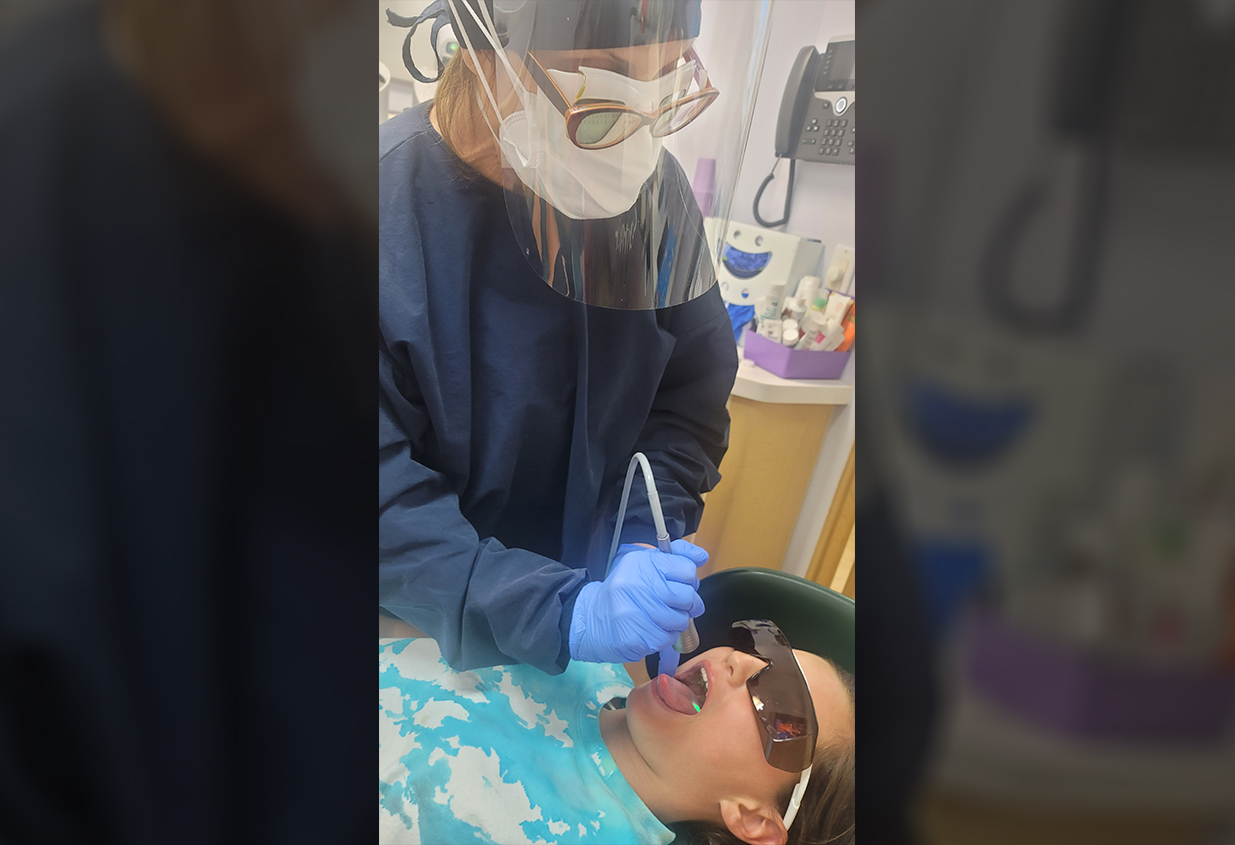Laser dentistry leverages the therapeutic benefits of highly energetic and precisely targeted laser light, often used in place of dental drills or cutting instruments. Dental lasers are now commonly used to remove decayed tooth enamel and to cut or remove soft oral tissue. This method can be an excellent treatment option for children of all ages and especially for kids who may not tolerate the sensations (sound, touch, pressure) associated with drilling or bladed instruments.
Dental laser treatment can help make a child’s visit less stressful because it doesn’t include the sensory experience of a dental drill. Although dental laser equipment may emit sounds, there is no high-pitched “whirring” that some young patients find disconcerting. Dental lasers provide Los Angeles, CA, pediatric patients with a treatment that can improve the in-office experience and clinical results.
Because dental lasers are a newer, less familiar type of technology, some misinformation has grown around their use:
It Is Expensive
The cost of laser treatment may be reimbursed by dental insurance providers, just as with conventional drilling. Investing in and operating dental laser equipment can be a significant financial commitment for the dentist, and better-equipped offices may invest in multiple machines. Dentists must also invest in advanced training and certification to use dental lasers safely in their practices. Thus, clinics using dental lasers may reflect the added cost of advanced technology, maintenance (very important!), and education in their fees. Remember, your dentist’s goal is to make your child’s office experience more enjoyable and to ensure that parents see the positive results: Happier, healthier kids!
It’s Painful
Dental laser procedures are usually significantly less painful than more traditional surgical or aesthetic procedures (those involving drills or blades). Reducing fear, stress, and physical discomfort is an important goal, especially with pediatric patients who, for various reasons, may not tolerate traditional treatments well.
Insurance Doesn’t Cover It
Most insurers do not determine whether a treatment is covered based on the method. Unless the procedure is strictly cosmetic, chances are your laser dental treatment is covered.
If laser dentistry sounds like something you would like to explore, talk to your pediatric dentist to see if it is a treatment option that they offer their patients.

